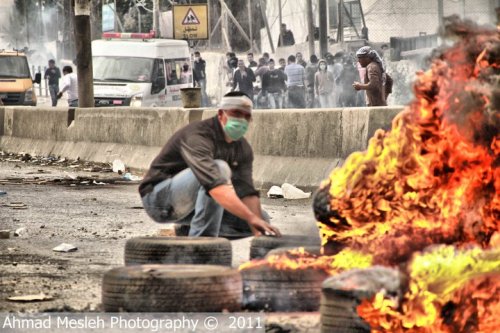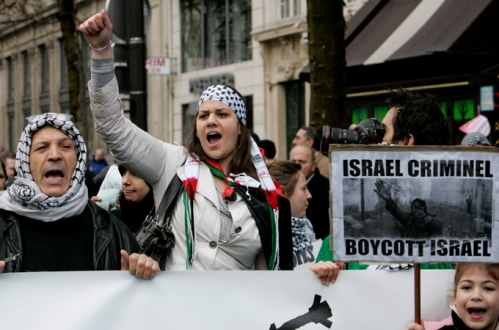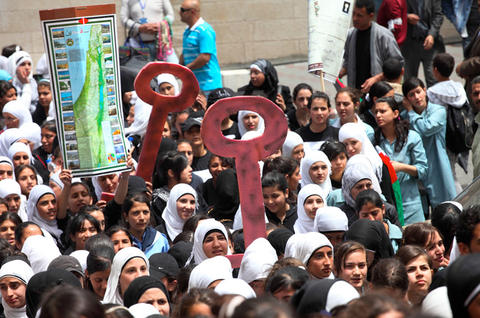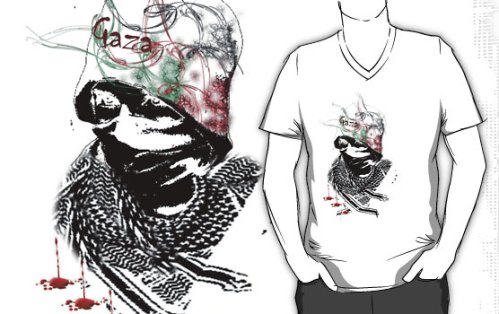This post first appeared on openDemocracy
Once again, another controversial report by the Associated Press raises questions about western media coverage, particularly that of AP, whenever the issue under discussion has to do with domestic circumstances in the Gaza Strip under the control of the Hamas government. Though most previous reports addressing the general situation of a shrinking Christian minority in Gaza have been called into question for the way they were shown to be either prejudiced or unsubstantiated, this time the story entitled “Gaza Christians protest ‘forcible conversions’” has been factually discredited by outside sources and later confirmed by none other than the AP reporter who wrote the story.
His story is about a silent protest staged by the Christian minority in Gaza against the ‘forced conversion’, or so it is claimed, of two Christians from Gaza, a 25-year Ramez Al-Amash and a 31-year Hiba Abu Dawoud, who escaped after conversion taking her three daughters along with her. The report quotes the converts’ family members attending the protest several times throughout, communicating their feelings of extreme anger and frustration, which rather sensationally sets the background. These quotes are all taken at face value by the reporter without any effort to verify their credibility. The report allows for little if any room for well-evidenced factual statements about the general situation of Christians in Gaza.
For his part, Ali Abunimah, Electronic Intifada co-founder, thoroughly refutes any claims of ‘force conversions’ made by the converts’ families as adopted in the AP report. Abunimah provides evidence arrived at by an investigation conducted by the Palestinian Centre for Human Rights that repudiates any of the above claims. He further highlights the several inaccuracies and ellipses of the report, in addition to the emotive language it employs, which he describes as faulty and unprofessional. Abunimah explains the particular damage such allegations have already inflicted on the image of not only the Hamas government (which might be the main purpose of the report as Abunimah’s introduction explicitly states) but also the entire Muslim population of the Gaza Strip. The fact that the story is deeply flawed needs no more demonstration than the clarification of the AP reporter who wrote the story, Diaa Hadid, who afterwards tweeted that the two converts have not actually been coerced into conversion as incorrectly, to put it mildly, claimed by their families, but rather that they were converted of their own free will and “sought protection with Hamas authorities fearing community retribution.”
The Christian minority in Gaza has been the subject of multiple reports in recent years – and each time the timing of the report by western media outlets seems calculated. Two of the most recent examples of this reporting on the current domestic state of affairs in Gaza might help us to understand how this prejudiced coverage works.
The first was an AP feature story published in August 2011 which purported to highlight the widening gap between a rising middle class in the Gaza Strip and the majority of the population. I wrote a rebuttal of this ill-timed piece at the time which seemed primarily designed to deflect attention from what was unfolding on the ground, that month having witnessed one of Israel’s deadliest offensives against the Palestinians in Gaza. In addition to subtly questioning the fact that a humanitarian crisis had engulfed the Gaza Strip and its 1.7-million population, the story did not account for the alleged rise of this middle class except by simplistically relating it to the attitudes of the Hamas government and the “corruption” of some of its “loyalists.” There is no reference whatsoever to the root causes of the problem represented in Israel’s (indirect?) occupation of the Gaza Strip and its five-year hermetic blockade.
The second example is a feature story, this time in the Guardian, the subject of which was the Christian community in Gaza as they readied themselves to celebrate Christmas “long[ing] for the days before Hamas cancelled Christmas,” or so the title of the story proclaimed. On this occasion, I juxtaposed the piece to a contemporaneous feature in Al Akhbar English on Christians’ preparations for Christmas in Gaza. Phoebe Greenwood of the Guardian opens her story with the unsubstantiated claim that there have been no Christmas celebrations in Gaza since Hamas’ ascension to power in June 2006. Addressing the general situation of Christians in Gaza and the several problems they have to face extremely vaguely, the reader automatically blames the government as the source of this trouble, thanks to the hint about the government’s restrictive policies at the beginning of the story. Ruqayya Izzidien of Al Akhbar English however quotes various interviewees leaving little doubt that the blame should be placed squarely on the Israeli occupation and its oppressive policies against the Palestinians, Muslims and Christians alike. This is in addition to the completely distorted image which the reporter draws of the Muslims-Christians relationship where Christians appear to be constant targets of the government’s policies as well as of Muslim fundamentalists.
Now as the most recent AP report on this issue has been proven false, and in response to Abunimah’s demand that the AP apologize for the damage it has caused to the image of the government and the people in Gaza, the AP Jerusalem bureau refuses to apologize. It stands by its false report insisting that “[the] story does not contain errors, grave or otherwise, and there will be no correction. We are attempting a follow up story on this complex issue.”
The general prejudice of mainstream western media in their coverage of the occupied territories and particularly that of the domestic situation in the Gaza Strip, is hard to shift. Nearly all coverage of the situation of Gaza’s Christians is distorted by rigid, Orientalist perceptions, not only of what an Islamist government looks like and how it behaves, but also of how intolerant, oppressive and highly conservative, a Muslim society like that of Gaza must be.
Ramy Abu Jilda, a Christian from Gaza, interviewed for the Al Akhbar English piece referred to above, had this to say about the western media’s coverage of Gaza. “All my friends are Muslims. I don’t care if my friends are Christian or not. My Muslim friends here in Gaza also wish me Merry Christmas and come to visit me at Christmas. So what the media says about Arabs and intolerance isn’t true.”








